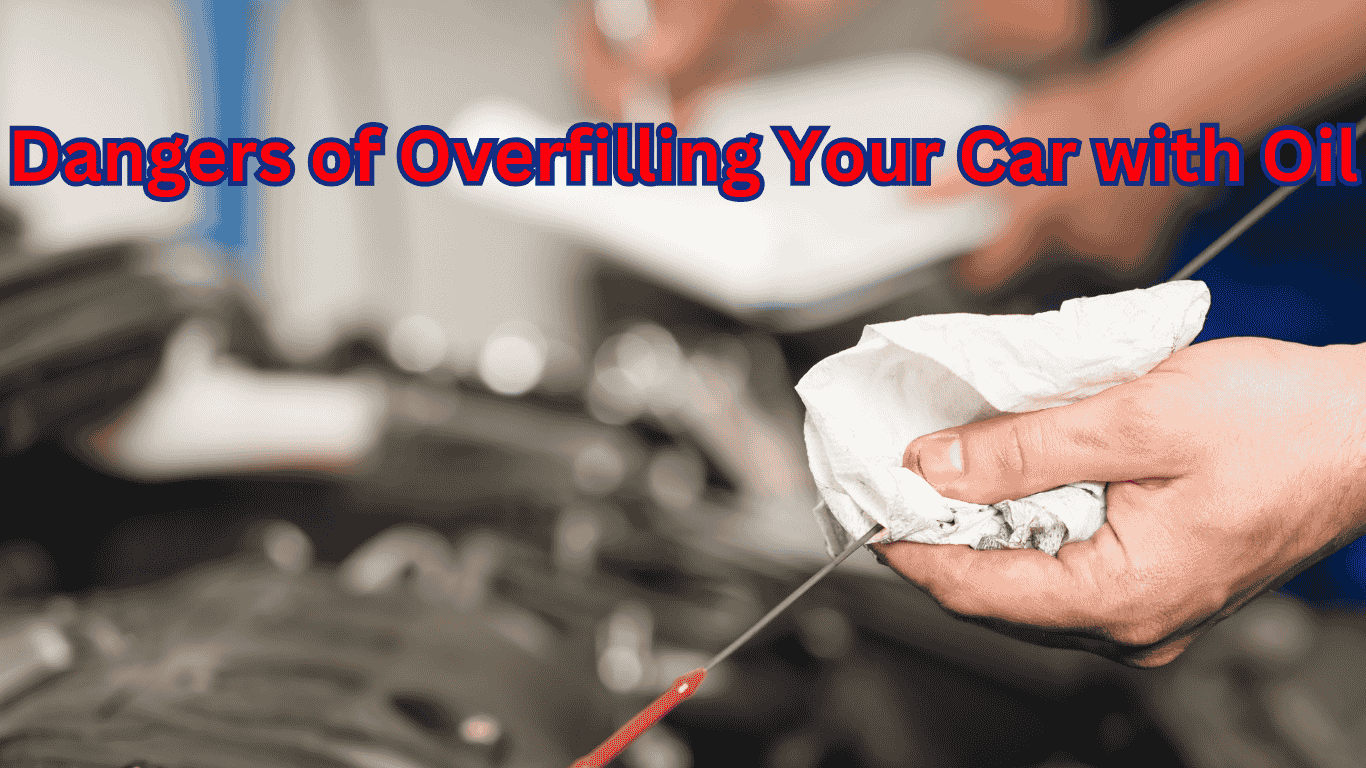Dangers of Overfilling Your Car with Oil | Prevent Engine Damage & Costly Repairs

Dangers of Overfilling Your Car with Oil | How To Avoid Serious Engine Damage
Are You Overfilling Your Engine Without Knowing It?
It's easy to assume that adding a little extra oil won't hurt. After all, oil is what keeps your engine running smoothly, right? But here’s the problem—too much oil can be just as dangerous as too little. Overfilling leads to foaming, leaks, overheating, and even catastrophic engine failure.
Ignoring this mistake can cost you thousands in repairs. Let's break down exactly what happens when you overfill your oil and how to prevent it.
Increased Internal Pressure and Oil Aeration
When you overfill the oil pan, the excess oil reaches the crankshaft. As the crankshaft spins, it churns the oil, causing it to foam.
⚠️ Why It's Dangerous: Foamy oil loses its ability to lubricate engine components properly. This increases friction, wear, and heat—leading to premature engine failure.
Oil Leaks and Seal Damage
Engines are designed for a specific oil capacity. Excess oil creates higher-than-normal pressure inside the crankcase, which forces oil past gaskets and seals.
⚠️ Why It's Dangerous: Leaking oil can damage belts, hoses, and electrical components, leading to bigger (and more expensive) issues down the road.
Catalytic Converter Contamination
Overfilled oil can be pushed into the combustion chamber and burned alongside fuel. This unburned oil produces thick deposits that coat the catalytic converter.
⚠️ Why It's Dangerous: A clogged catalytic converter reduces engine efficiency, triggers a check engine light, and can cost up to $2,000 to replace.
Engine Misfires and Reduced Performance
When oil enters the combustion chamber, it can foul the spark plugs—disrupting the ignition process.
⚠️ Why It's Dangerous: You may experience rough idling, sluggish acceleration, and poor fuel economy. If left unchecked, your engine could struggle to start or even stall.
Overheating Risks
Motor oil helps regulate engine temperature by carrying heat away from critical components. However, foamy oil can’t circulate properly.
⚠️ Why It's Dangerous: Overheating can warp cylinder heads, blow gaskets, and permanently damage your engine.
Crankshaft and Piston Damage
If oil levels are too high, the crankshaft must push through the excess oil, creating unnecessary resistance.
⚠️ Why It's Dangerous: This added strain can wear down crankshaft bearings, damage piston rings, and even lead to mechanical failure.
PCV System and Air Intake Contamination
Excess oil can be forced into the Positive Crankcase Ventilation (PCV) system, where it enters the air intake.
⚠️ Why It's Dangerous: Oil buildup in the intake system leads to carbon deposits, reduced airflow, and poor engine performance.
How to Prevent Overfilling Your Oil
✅ Check Oil Levels Regularly – Always use the dipstick to ensure your oil is within the correct range.
✅ Drain Excess Oil Immediately – If you accidentally overfill, remove the extra oil as soon as possible.
✅ Follow Manufacturer Guidelines – Every engine has a specific oil capacity. Always check your owner’s manual before adding oil.
✅ Use High-Quality Oil That Resists Foaming – Some oils are more resistant to foaming than others. Choosing a premium synthetic oil helps minimize risks.
The Bottom Line: Overfilling Your Oil Can Cost You Thousands
A simple mistake like adding too much oil can lead to major engine problems—including overheating, leaks, and misfires. The good news? It's completely avoidable.
Want to protect your engine from breakdowns? AMSOIL synthetic lubricants provide superior protection, better heat resistance, and reduced oil foaming—keeping your engine running at peak performance.
Shop AMSOIL now and ensure your vehicle gets the best protection possible!
Where to Buy / Become a Dealer
Looking to buy AMSOIL?
Powered by Vyscocity
Built by Vyscocity to help you get the job done right — whether you're riding, wrenching, or running a fleet.
Explore our products, try our free tools, and let us know how it works for you.
❓ Still stuck? Ask your question on Facebook →
No fluff. Just function.










